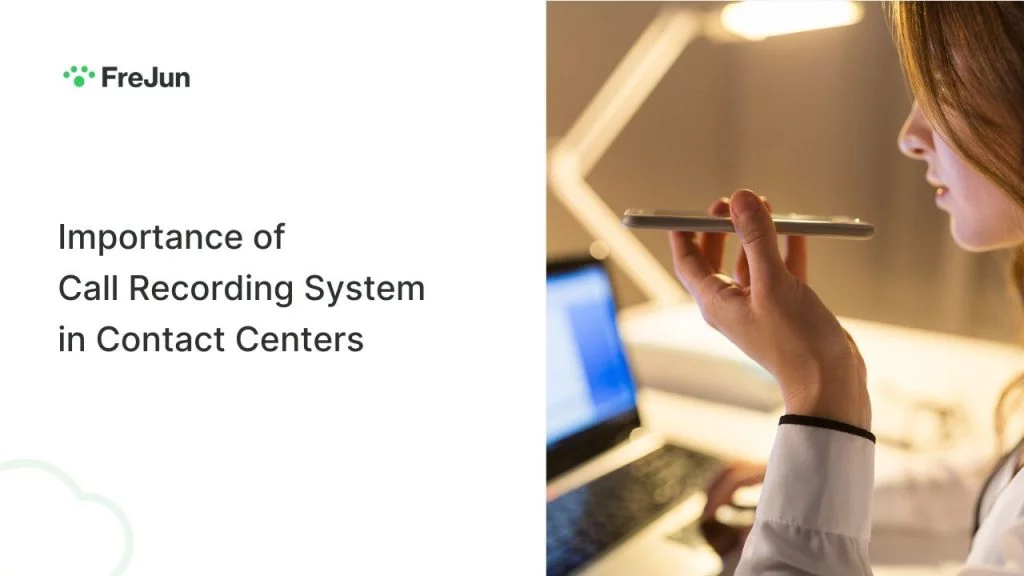
In today’s fast-paced business environment, effective communication is essential for maintaining customer satisfaction and adhering to regulatory standards. Call recording has emerged as a vital tool that not only enhances communication but also plays a critical role in dispute resolution and compliance. This article explores how call recording can help businesses navigate disputes and ensure compliance with industry regulations.
Why Call Recording is Important

1. Enhanced Accountability
Call recording creates a clear and objective record of conversations between customers and service representatives. This accountability helps protect both parties by providing a factual account of discussions, agreements, and commitments made during calls.
2. Improved Training and Development
Recording calls allows organizations to analyze customer interactions, identify training opportunities, and refine sales techniques. This can lead to better dispute management and compliance adherence, as employees are better equipped to handle various situations.
3. Increased Customer Trust
When customers know that calls may be recorded for quality assurance or compliance purposes, it fosters a sense of trust and transparency. This can lead to improved relationships and reduced disputes over time.
How Call Recording Aids Dispute Resolution

1. Clear Documentation of Agreements
In cases of disputes, having a recorded conversation can serve as critical evidence. Call recordings can document agreements made, providing clarity on what was discussed and preventing misunderstandings.
- Example: If a customer claims that a service was promised but not delivered, the recorded call can verify the details of the agreement and provide context for both parties.
2. Objective Analysis of Disputes
Call recordings allow for objective analysis of the conversation, removing subjective interpretations of what was said. This is particularly useful when resolving disputes, as it provides an unbiased source of information.
- Tip: Involve third-party mediators to review call recordings during disputes to ensure impartiality.
3. Streamlined Resolution Process
With access to recorded calls, customer service teams can quickly review the conversation, assess the situation, and respond more effectively. This speeds up the dispute resolution process and enhances customer satisfaction.
- Example: A customer raising a concern about billing discrepancies can have their previous call reviewed promptly, allowing for a faster resolution and improved service experience.
How Call Recording Supports Compliance
1. Regulatory Adherence
Many industries, such as finance, healthcare, and telecommunications, are subject to strict regulations regarding customer interactions. Call recording helps organizations comply with these regulations by providing a clear record of communications.
- Example: Financial institutions are often required to record customer interactions to ensure compliance with regulations like the Dodd-Frank Act or the MiFID II directive.
2. Quality Assurance
Recording calls can help ensure that customer service representatives adhere to company policies and regulatory requirements during interactions. Regular audits of recorded calls can identify non-compliance issues and facilitate corrective actions.
- Tip: Implement a quality assurance program that regularly reviews recorded calls for adherence to compliance standards and company policies.
3. Evidence in Legal Situations
In the event of legal disputes or regulatory audits, recorded calls can serve as evidence to demonstrate compliance and adherence to industry standards. This can protect businesses from potential legal repercussions.
- Example: If a customer files a complaint alleging unethical practices, recorded calls can help defend the organization by providing documented evidence of compliance.
Best Practices for Implementing Call Recording
1. Inform Customers
It’s essential to inform customers that their calls may be recorded for quality assurance, training, or compliance purposes. This transparency builds trust and ensures compliance with privacy regulations.
2. Establish Clear Policies
Develop clear policies regarding call recording, including how recordings will be stored, accessed, and used. Ensure that all employees are trained on these policies to promote consistency and compliance.
3. Use Secure Storage Solutions
Protect sensitive customer data by using secure storage solutions for call recordings. Implement encryption and access controls to ensure that only authorized personnel can access recorded calls.
4. Regularly Review and Analyze Recordings
Schedule regular reviews of recorded calls to identify trends, training needs, and compliance issues. This proactive approach can help mitigate disputes and enhance overall performance.
Conclusion
Call recording is a powerful tool that can significantly aid businesses in dispute resolution and compliance. By providing clear documentation, fostering accountability, and ensuring adherence to regulations, call recording enhances the overall quality of customer interactions. Implementing best practices for call recording can further optimize its benefits, leading to improved customer trust and satisfaction. Embrace call recording as a strategic asset to enhance your organization’s communication, compliance, and dispute resolution processes.
